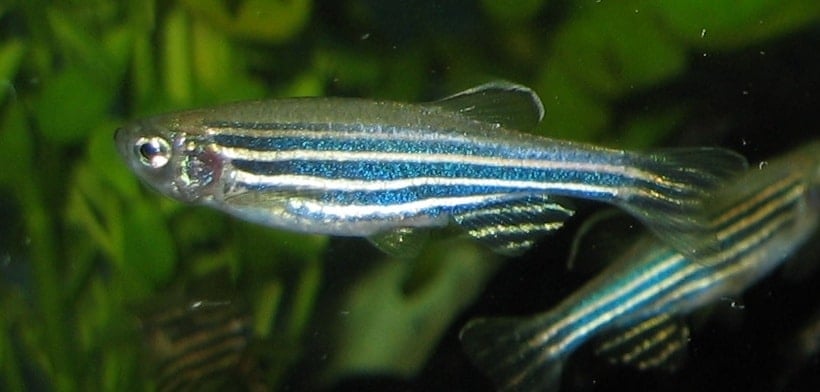Unique Set of Proteins Restores Hearing in Zebra Fish

WASHINGTON — Research into a specific network of proteins that restores hearing in zebra fish through cell regeneration may inform the development of treatments for hearing loss in humans, according to the National Institutes of Health.
The study, led by investigators at the National Human Genome Research Institute, was published in Cell Genomics.
Hearing loss affects around 37.5 million Americans, and most cases come from the loss of hearing receptors known as “hair cells” in the inner ear.
Bristles that stick out of these microscopic hair cells move and bend when sound travels into our ears, resulting in electric signals sent through nerves and into our brains that allow us to process sound.
Although hair cell loss cannot be replaced in humans, many animals, including zebra fish, can restore hearing after injury through the regeneration of hair cells.
The regenerative properties of zebrafish hair cells prompted researchers to use this animal to understand some fundamental properties of regeneration.
“Humans and other mammals are born with a set number of hair cells that are slowly lost through aging and trauma,” said senior investigator Shawn Burgess. “However, some animals, such as zebra fish, can regenerate hair cells and recover hearing after injury.
“How and why regeneration happens in these animals remain a mystery that many scientists would like to unravel,” Burgess added.
Humans and zebrafish are visually quite different, but at a genomic level they share more than 70% of their genes. This genomic similarity offers the potential for researchers to understand the biology of cell regeneration in zebra fish before translating the findings to humans.
When hair cells die in zebra fish, nearby support cells start replicating. These support cells are like stem cells because of their ability to become other cell types. Researchers had identified some of the factors that convert support cells into hair cells, but what was not understood is how and where the genes encoding those factors turn on and are coordinated with other unknown factors.
“We have identified a unique combination of transcription factors that trigger regeneration in zebra fish. Further down the line, this group of zebra fish transcription factors might become a biological target that may lead to the development of novel therapy to treat hearing loss in humans,” said Erin Jimenez, Ph.D., a postdoctoral fellow in the laboratory.
Dan can be reached at [email protected] and @DanMcCue

























